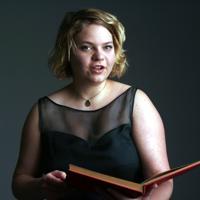Online Research Symposium: Singing, Wellbeing and Social Inclusion
Friday 24th September 2021, 9:00 AM - 12:30 PM (London Time)
The Voice Study Centre and De Montfort University’s Mary Seacole Research Centre are delighted to announce their next online symposium on Singing, Wellbeing and Social Inclusion on 24 September 2021 between 9am and 12:30pm (BST).
The symposium will be held on Zoom and is free of charge.
Programme:
9:00 Welcome with Prof Raghu Ragavan (Mary Seacole Research Centre, De Montfort University) and Debbie Winter (Voice Study Centre)
9:15 Prof Johann van der Sandt, University of Bozen/Bolzano, Italy
Musical Habits and Wellbeing of adolescent choir singers in Italy, Austria and Finland during Covid-19 Lockdowns
9:45 Dr Sanna Salminen, University of Jyväskylä, Finland
Benefits of Singing reflected in the conceptual framework of social inclusion
10:15 Celi Barberia, Sing Up Foundation, UK
Sing Up: Children and Young People and the benefits of singing
10:45 Emily Foulkes, Singing for Health Network and Voice Study Centre, UK
Singing for Health
11:15 Dr Motje Wolf, De Montfort University and Voice Study Centre, UK
The Effect of Covid-19 Lockdowns on Performer Identities of Professional Singers in the UK
11:45 Plenary
12:15 Good-bye
Dr Motje Wolf
Dr Motje Wolf was awarded a PhD in Music Education from De Montfort University Leicester (UK) and an MA from the University of Leipzig (Germany) in Musicology and Dramatics. Her research focuses on vocal pedagogy, epistemology and pedagogic knowledge exchange.
Emily Foulkes
Emily gained a Distinction in her Master’s in Voice Pedagogy, specialising in Singing for Mental Health, Pain Management, and Trauma-Informed Practice...
Johann van der Sandt
Johann van der Sandt completed his studies at the University of Pretoria, and his choral conducting at the Institute of Choral Conducting in Gorinchem, Netherlands. He is a sought after juror, composer and choral clinician.
Dr Sanna Salminen
Dr Sanna Salminen is an acknowledged music educator in her home country. She works as a university teacher in Music Pedagogy under the Department of Education at the University of Jyväskylä.
Celi Barberia
Celi Barberia has been working in music education for over 15 years, through fundraising and policy roles at Youth Music and then communications and marketing roles at Sing Up and has had a lifelong passion for the arts, education and working in charities.
Sorry, this is an archived short course...
We have plenty of upcoming short courses coming soon. See details of some of them below or look at the full list of short courses.

Thursday 19th February 2026
1:00 PM - 2:30 PM
Thursday 26th February 2026
1:00 PM - 2:30 PM
(London Time)
Performing Pain: Vocal Health in Emotional Roles!

Louisa Morgan
How connected are acted emotions to our real-life emotions? Are they expressed differently? Do they feel different in the body? This 2-part course with Louisa Morgan looks at the potential impact of acted emotion on vocal health, why we should consider it as voice practitioners, and how to care for our performers needing to work with it.


Tuesday 24th February 2026
5:00 PM - 7:00 PM
(London Time)
Incorporating CBT principles within vocal health and voice care

Dr Luke Aldridge-Waddon
Join Dr Luke Waddon as he introduces the principles and techniques within cognitive-behavioural therapy (CBT) in relation to the voice and voice care. He will discuss psychological factors relevant to the development and maintenance of voice disorders and how these might be approached from a cognitive-behavioural perspective. He will describe theoretical concepts and therapeutic components often used within CBT and consider how these might be applied when working with voice users.


Tuesday 3rd March 2026
5:00 PM - 7:00 PM
(London Time)
Sex differences in VOICE!

Dr Richard Lissemore
This two-hour workshop, led by performer, articulatory phoneticist, and voice physiologist, Dr. Richard Lissemore, will examine in detail the role that biological sex plays in the perception and pedagogy of singing voices. We'll consider how parameters such as anatomy, physiology, articulation, resonance, and radiated acoustics influence the perceptions and pedagogical decision-making of singing teachers.




